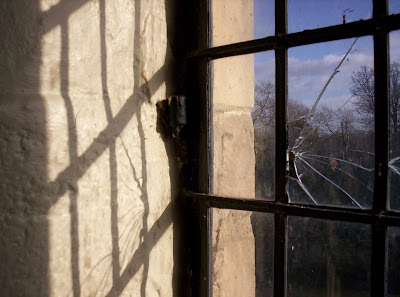 |
| Warwick Castle, Warwickshire, England |
This poem was written during my year-long stint as Warwick Poet Laureate and is about the past and present Warwick Castle.
It was described by David Morley, poet and Director of the Creative Writing Programme at Warwick University, as 'a Modernist piece de resistance' - he also wrote the Foreword - and by David Floyd, writing in Sphinx, as 'one of the more ambitious works of public poetry generated through a local laureateship.'
So you have been warned ...
The old man sits behind themon the grass, clay pipe stuck to his lip:‘It was a day like thiswe rode against the King. Fifty years back.I was a boy then.’A black mist, first thing,and out of that mist,the hiss of an arrow-storm, burning.Those that survivedwere sent down into the dark for it.So, with the concealed bladefrom a pocket knife, Master John Smithetches out his name, and dateof his imprisonment:Master John Smythe, Guner to his Majestye Highnesswas a prisner in this place and lay herefrom 1642 - tell theHere, he's interrupted by the blade breakingor a tour guide, descending.There are rules even in darkness.For a really serious breach,the guide book tells him,such as plagiarism or pastiche,a man might be hung alive in chainsnear the scene of his crime.
'Tell them,' he was to have finished,'I am a traveller in time,a master smithforged here in the shadows. I fall.I stop. My flesh decays.Yet here my name remains untilthe very end of dayswhen there may be timefor the courtyard gift shop, after all.Follow the signs.'Up here in the light, every movementis blinding.
Stone light, greyas a pigeon’s feather, cold on the riseto Blacklow Hillwhere Piers Gaveston fell: a moment’s strugglein wet grass,then the surprised head of the king’s loverrolls free, his lips drawn back,still twitching.Down in the village, a boyarmed with a spadewashes his face; trudges to work.This rough mound, the sign says, was fortifiedon the orders of William the Conqueror.So, while Mercians dug, Normans sat,pining for the wheat fields of France.Hony soyt quy mal pence.1066 and All That.'No matter the right or wrong of it,we had to follow Warwick.Sheer black mist, first thing,and out of that mist,the hiss of an arrow-storm, burning.My father fell there in the confusion,a few miles shy of London.He died at Waterloo.Took a bullet in the Crimean.Fell at Ypres. Was listedamong the missing.'The boy stopped speaking ...
Read the rest of ON WARWICK CASTLE as a Kindle ebook. Currently only 77p!







